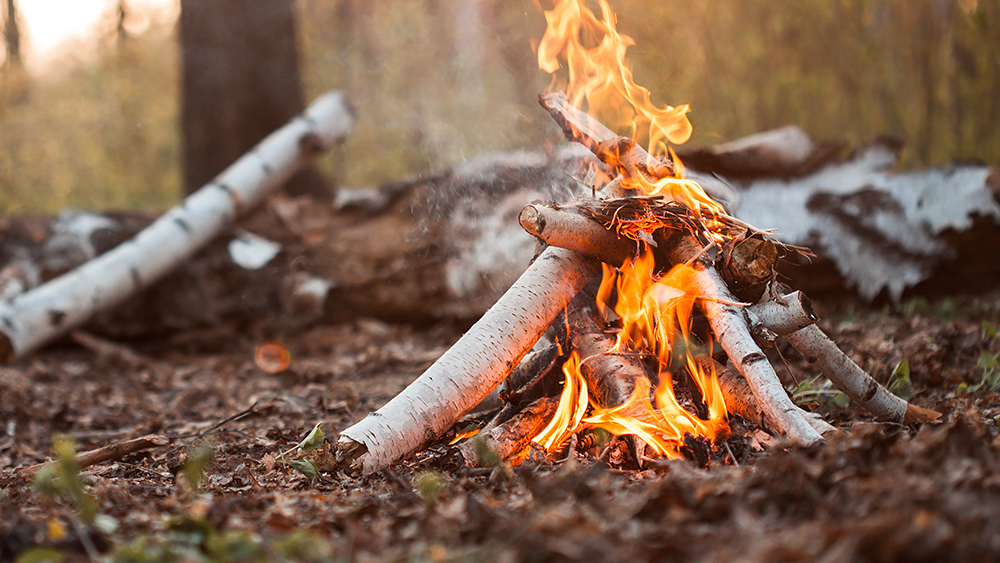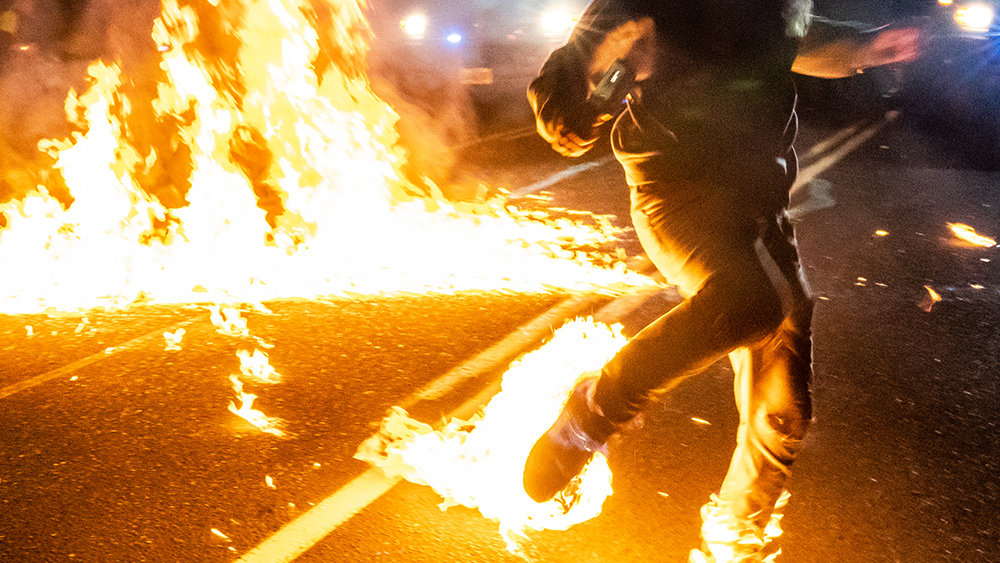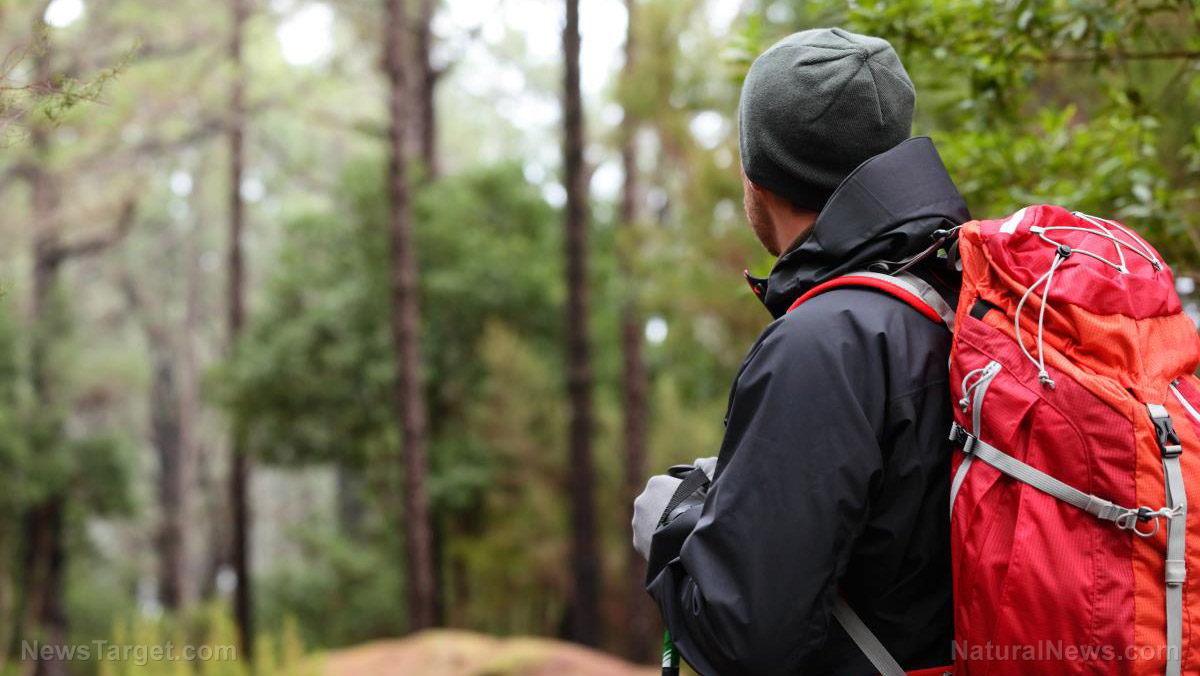
Deciding to become a prepper may be one of the wisest decisions you've ever made in your life. But the road to preparedness isn't easy. If you're not sure where to begin, try gathering essential items for your stockpile. (h/t to SurvivalSullivan.com)
You'll need the 12 important preps detailed below before you start getting into the many facets of the prepper lifestyle. Doing this helps you prepare for common threats that you or your family might face when SHTF.
Clean drinking water (a gallon of water per person per day)
You should have enough water for at least three days, but one week is better. Water is essential for hydration, personal hygiene, food preparation, and sanitation.
Rotate your water supply and store it in a cool, dry place. (Related: Tips for the beginning prepper.)
Shelf-stable food (A minimum of 2,000 calories per adult per day)
Food will help you stay mentally alert and energized when SHTF. Treats or favorite foods can also boost your family's morale during a disaster.
Start by stocking up on these foods, which have a long shelf life:
- Canned foods
- Dehydrated fruit slices
- Dried beans
- Honey
- Instant coffee
- Legumes (e.g., beans and peas)
- MREs (Meals, Ready-toEat)
- Pasta
- Powdered milk
- Salt
- Sugar
- Tea
- White rice
Keep track of expiration dates and stock up on disposable plates, utensils, and cups. Make sure you have a can opener (or two) so you can eat your food when disaster strikes.
A First Aid kit
A basic kit must include the following items:
- Antiseptics
- Band-aids
- Burn cream
- Elastic bandages
- Gauze
- Hemostatics to stop blood loss
- Medicines for pain, nausea, and other common complaints
- Prescription medicines
- Pressure dressings and Israeli bandages
- Tourniquets
Learn how to use these items and sign up for courses like basic First Aid, CPR, and essential trauma care. During a large-scale disaster, emergency services will be swamped. But with a well-equipped First Aid kit, you can quickly tend to minor injuries when SHTF.
Hygiene kit
You need to maintain personal hygiene when SHTF. This doesn't just improve your mood and maintain a sense of normalcy, hygiene also helps prevent the spread of diseases, infections, and other ailments.
Include these items in your hygiene kit:
- Absorbent media for waste control (e.g., sawdust, etc.)
- Baby wipes
- Body powder
- Clean towels
- Deodorant
- Feminine care items (feminine wash or wipes, napkins, tampons, etc.)
- A heavy-duty five-gallon bucket
- Hand sanitizer
- Heavy mil contractor bags
- Rubbing alcohol
- Soap
- Toilet paper
- Toothbrush
- Toothpaste
Emergency radio
Use a NOAA crank-powered radio to monitor the news and receive updates regarding severe weather and other emergency conditions. Some radios will even come with a flashlight and USB chargers.
Seasonally-appropriate clothing
Prepare rugged clothes and footwear that will protect your body if you need to bug out. These clothes will also let you work on your homestead comfortably.
Make sure you have a change of clothes in your bug-out bag (BOB). Include a set of clothes like seasonally appropriate shirts, pants, underwear, boots, socks, gloves, and a hat.
A headlamp and extra batteries
When the power goes out, you can still finish tasks in the dark if you have a headlamp. A flashlight is also useful, but when SHTF you can benefit more from a headlamp because it leaves both your hands free.
Buy a high-quality headlamp with a dimmer switch that lets you adjust the light output to suit different tasks.
Large tarps and cordage
A tarp with grommets and cordage like paracord have many survival uses. Use these two items to build a shelter from the elements or as ground cover.
Brightly colored tarps can also be used to signal for help if you get lost in the woods. Purchase a tarp made with high-quality synthetic material and heavy-duty grommets.
Tool kit
You'll need a basic tool kit to fix or build things around your homestead after SHTF.
Make sure you have these hand tools in your kit:
- Framing hammer
- Sturdy pry bar
- Saw
- Duct tape
- Different kinds of screwdrivers
- Vise grips
- Wrenches
- Pliers
- Utility knives
- Screws
- Nails
- Superglue
- Wire cutters
If you already have a tool kit at home, make sure it includes items that you can use to fix leaky pipes, shut off utilities, or nail up boards for shelter and security.
Backup of important documents
When SHTF, you may lose important files. Make sure you have a backup of important IDs, birth certificates, passports, deeds, titles, bank information, registrations, etc. in both physical and electronic formats.
Seal hard copies of legible documents in heavy, weatherproof protectors. For electronic backups, save all documents to an encrypted flash drive in common formats.
Maps
If you need to bug out or evacuate, a map will help you get from point A to B. When SHTF, there's a chance that you can't use your phone to check Google Maps, so prepare an old-fashioned paper map.
Once you acquire a map of your local area and city, get a local region map and U.S. road atlas or some topographic maps.
Weapon of your choice
Disasters can bring out the worst in people, and a weapon like a firearm is essential if you want to protect yourself and your family from looters. If you're not confident with a firearm, consider getting a knife that you can wield properly. Other options include pepper spray, a taser, or a baseball bat.
This list barely scratches the surface of the prepping lifestyle, but with these essential preps, you can make it through anything when SHTF.
Sources include:
Please contact us for more information.





















